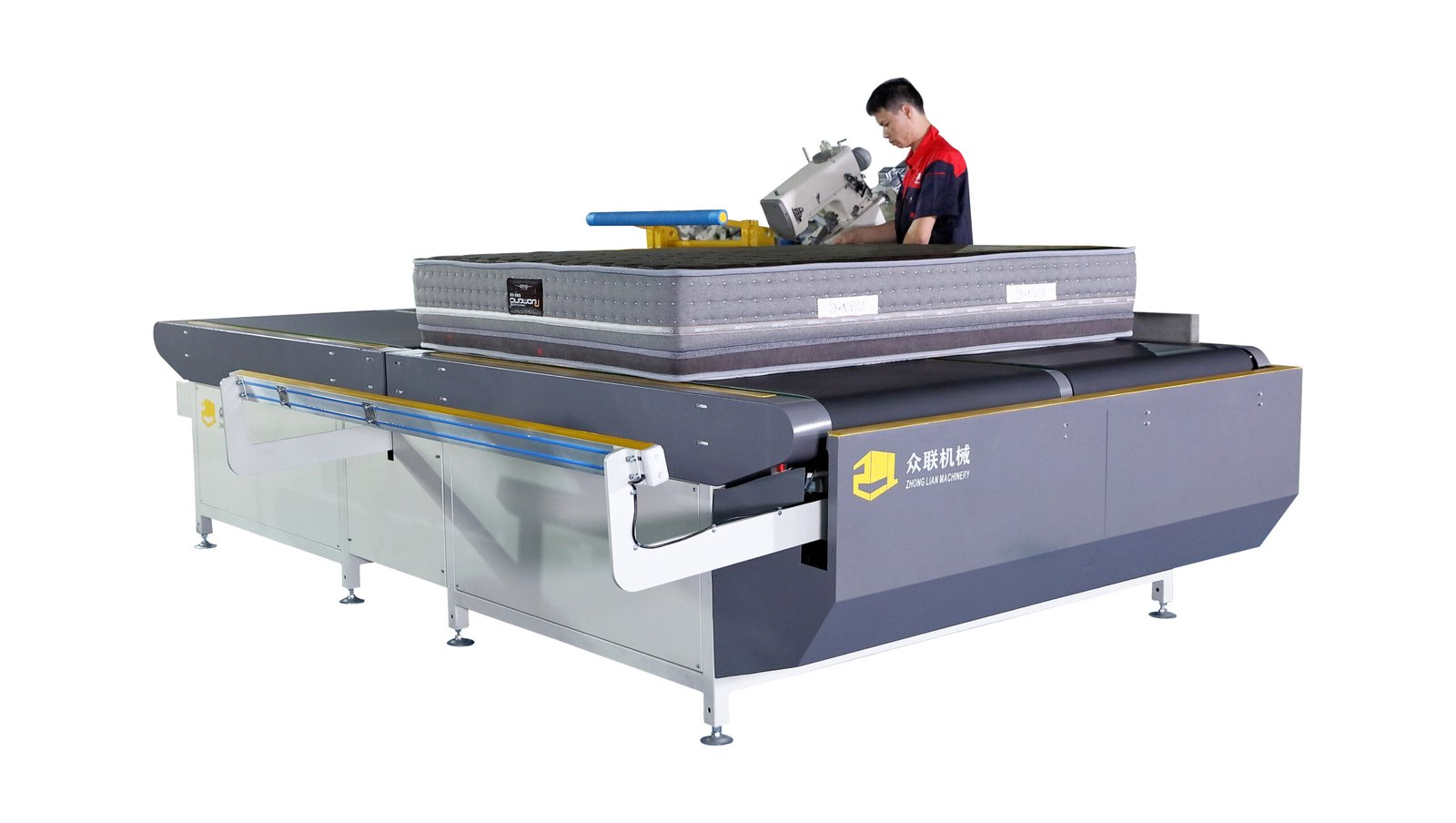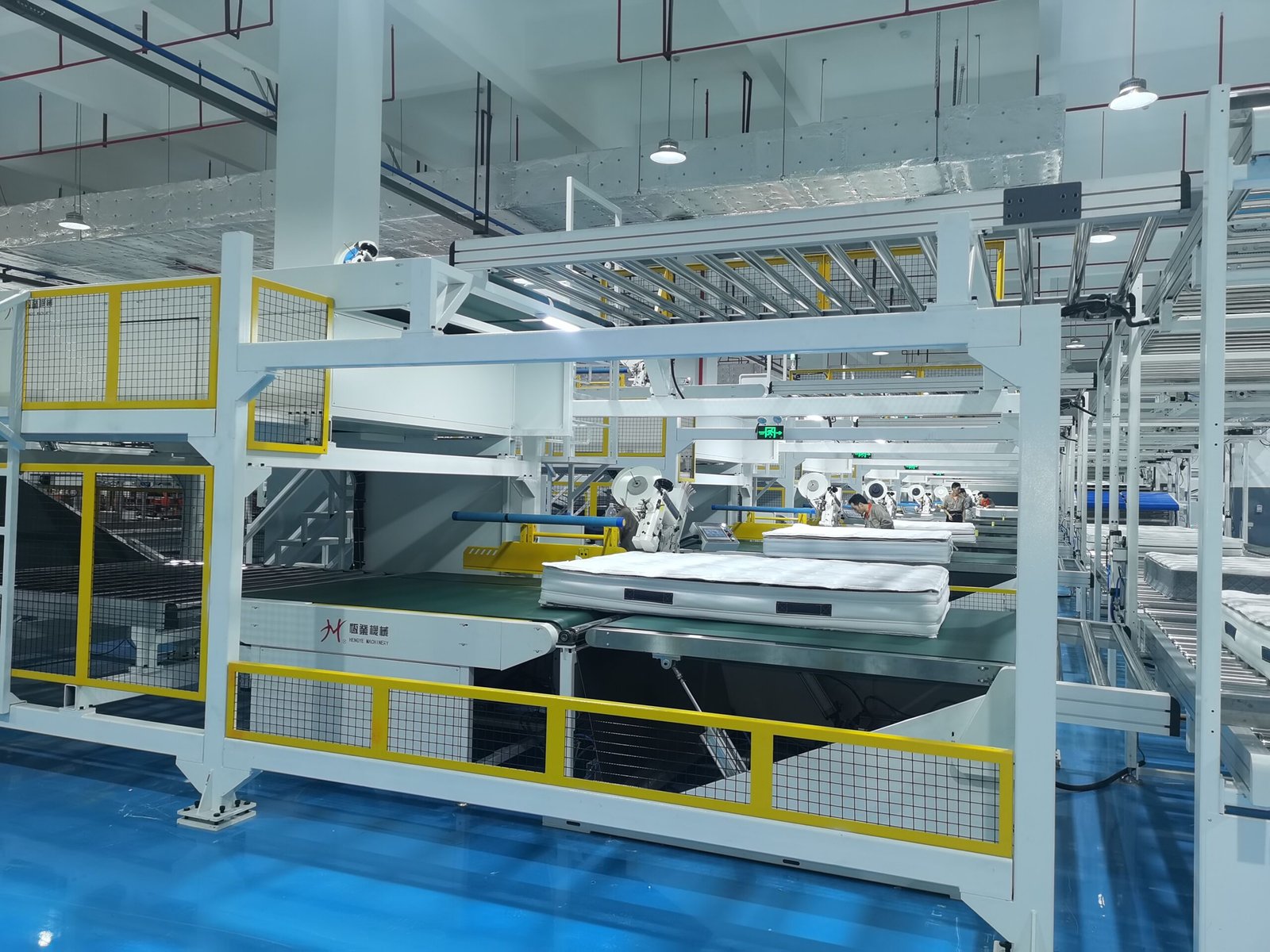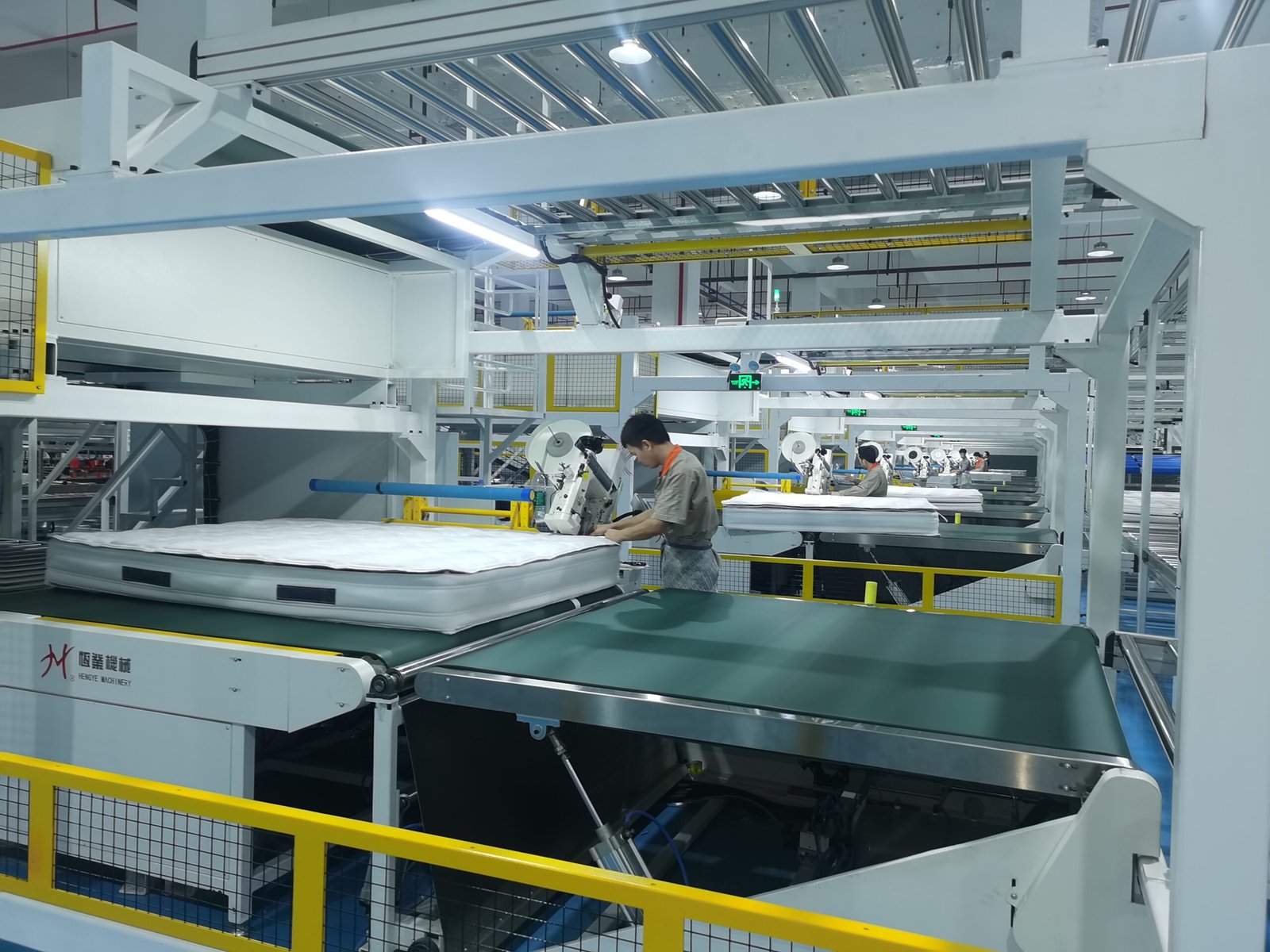Buying the wrong sewing machine can cost you time, money, and customer satisfaction.
The right mattress sewing machine improves productivity, handles your materials efficiently, and helps you deliver consistent, high-quality mattresses.

In this article, I’ll walk you through the key things to consider when choosing a mattress sewing machine—based on my experience working with factories across Southeast Asia.
What Should You Know About Your Business Before Choosing?
Too many people buy first and ask questions later.
Start by understanding your mattress styles, production volume, worker skills, and stitching needs.

Key Evaluation Questions
🛏️ Mattress Types
Do you mostly produce spring mattresses, foam mattresses, hybrids, or pillow-tops?
Each type may need different sewing capabilities.
📦 Production Volume
How many mattresses do you make per day or per shift?
Small batch production and high-speed export lines have very different machine needs.
👷 Staff Skill Level
Are your operators experienced or new?
Some machines have steep learning curves. Others offer touchscreen interfaces for fast training.
🎨 Stitching Requirements
Do you need only basic seams, or also decorative patterns and borders?
Summary Table
| Factor | What to Identify |
|---|---|
| Mattress Type | Spring / Foam / Hybrid / Custom |
| Daily Output Target | <100 / 100–300 / 300+ units |
| Labor Skill Level | Beginner / Intermediate / Skilled |
| Stitch Style | Straight / Zigzag / Decorative |
What Types of Mattress Sewing Machines Are There?
You don’t need to buy the most expensive machine—but you do need the right type.
There are 3 main types: tape edge machines, quilting machines, and border sewing machines.

Tape Edge Machine
This machine seals the outer edges of a mattress. It is essential for strength and appearance.
- Good for final finishing
- Handles thick mattress sides
- Used on almost every mattress type
Panel Quilting Machine
This machine stitches the top and bottom layers of the mattress. It affects comfort and look.
- Ideal for adding patterns
- Works on large quilted surfaces
- Can support foam or innerspring units
Border Sewing Machine
Used to stitch the mattress border panels. It adds style and strength.
- Often used with decorative tape or logos
- Supports brand customization
- May require extra space in the factory
| Machine Type | Main Function | Ideal For |
|---|---|---|
| Tape Edge | Closing mattress edge | All mattress types |
| Panel Quilter | Quilting top/bottom panels | High comfort or design models |
| Border Stitcher | Side stitching | Premium and branded products |
What Machine Specs Actually Matter?
Many sales brochures are full of numbers—but which ones should you care about?
You need to check specs like sewing speed, stitch length, fabric thickness range, and motor type.
Critical Specs to Compare
🔁 Stitch Types & Patterns
Check if the machine supports:
- Straight seams
- Zigzag
- Programmable decorative stitches
⏱️ Sewing Speed
Speed is measured in stitches per minute (SPM). Faster machines mean more output.
📏 Max Thickness
Make sure the machine handles your thickest materials without jamming.
⚡ Motor Type
Servo motors are quieter, faster, and more energy-efficient than clutch motors.
| Spec Category | Good Range for SMEs |
|---|---|
| Stitch Speed | 1,500–3,000 SPM |
| Max Thickness | 200–400 mm |
| Pattern Storage | 50–100 patterns (digital memory) |
| Power Type | AC 220V / Servo preferred |
How Important Is Durability and Build Quality?
Buying a cheap machine might save money today—but cost you later in downtime.
Choose machines with solid frames, brand-name motors, and reliable spare parts.
What to Look For
- Steel or cast iron frame (not plastic!)
- Reinforced needle bar and feeding system
- Industrial belts and bearings
I’ve had clients whose machines ran fine for 7+ years with only basic oiling—because they bought quality upfront.
| Durability Indicator | What to Expect |
|---|---|
| Frame Material | Steel or Cast Iron preferred |
| Motor Brand | Known brands like Siemens or Delta |
| Spare Part Access | Available locally or via fast shipping |
How Easy Should It Be to Operate and Maintain?
A machine that’s too complex slows you down.
Modern mattress sewing machines should be simple enough for new workers, and easy to clean and maintain.

Features That Help
- Automatic thread trimmer
- Touchscreen or button panel
- Easy needle change
- Self-lubrication system
- Simple daily maintenance
Some models come with training videos or quick setup guides. These save time during new worker onboarding.
| Ease-of-Use Feature | Why It Matters |
|---|---|
| Auto Thread Cutter | Saves time and reduces strain |
| Touchscreen Interface | Faster training, easier control |
| Open-Frame Maintenance | Quicker cleaning and part access |
Conclusion
Choosing the right mattress sewing machine comes down to knowing your factory’s output, materials, and worker skill—and matching that to machine performance and usability.
Get in touch with us for tailored solutions! We look forward to collaborating with you and shaping a brighter future together!
📞 | WhatsApp:+86 15220512074
📧E-mail:zhongliantec@gmail.com
Web | Link:mattressmachineryzl.com
